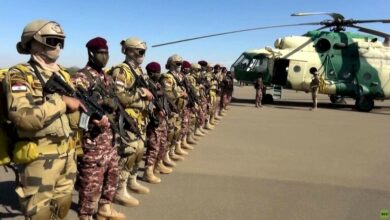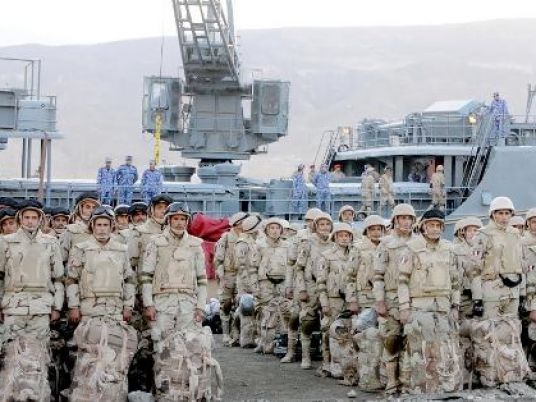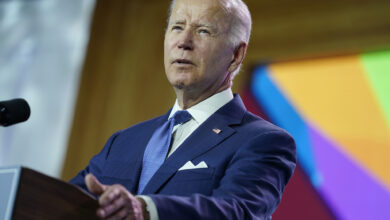All of us who have been in Egypt over the past few weeks have been privileged to witness a historic moment, not just for this country or this region, but potentially for the entire world. We have witnessed the fall of man that only a few weeks ago we could not, in this newspaper, outright call a dictator–indeed, neither could the vice-president of the United States, even from the comfort of Washington.
We have seen our neighbors take to the streets, shedding black humor and cynicism for delirious optimism and courage. We have lived through the exhilarating drama of the last few weeks, when the public mood changed from hour to hour between hope and terror. All of this has frayed more than a few nerves: once we knew with certainty the limits of the politically possible, now we are drunk with seemingly endless possibilities. Enjoy this moment, it will pass soon enough and the difficulties and traps of a transition to the post-Mubarak era will become fully evident. Some have already surfaced.
The first challenge is that posed by the disappearance of the presidency. Egypt’s old-new ruler, the military, is not used to being in direct control. With Hosni Mubarak in place, this august institution could always put some distance between itself and presidential decision-making. It no longer can, and this must be a difficult position for those generals who are now being held accountable by the population. No doubt they will want to restore some of the intermediaries that previously existed, starting with a cabinet that still contains some controversial figures. The military may have power–and perhaps, most importantly, public opinion largely behind it–but it is not used to governing.
Rather than learn how to do so at this most delicate of stages, when strikes are spreading and every Egyptian wants to seize the revolutionary moment to express his own discontent, it is normal that the military should want to pass on that duty to others. The best way to do that would be to include opposition figures not only in the cabinet but also in a governing council that would replace some of the functions of the presidency. The military might have been able to continue ruling by communiqué if this were the 1960s (before television and internet were widespread), but doing so now makes it appear comically anachronistic. Egypt may have to wait six months for a new president, but in the meantime it needs a caretaker authority.
The second challenge stems from one of the most damaging effects of 30 years of Mubarakism: the absence of credible intermediaries between the population and the state. The culmination of this attack on representation may very well have been the recent parliamentary elections, in which few voted and–as court verdicts tell us–the vast majority of MPs were not legitimately elected. The old-fashioned opposition parties have sunk into irrelevance, and newer secular forces such as the National Association for Change never truly developed. Despite the proliferation of new groups in the past few weeks, notably the ones representing the youth groups that occupied Tahrir Square, we are left with the old duo of the Mubarak era: the National Democratic Party (NDP) and the Muslim Brotherhood (MB).
The NDP may very well not survive the transition, and for now its former leaders are laying low. Whether it is abolished or not is a secondary question. More important is what will happen to its thousands of members that form an almost para-statal organization across the country. Will they form another party whose purpose is to connect local politicians to state patronage? Will they split into multiple parties or join existing and emerging ones? The most important thing would be to make it clear that the way the old NDP worked, as an extension of the state, must stop.
The MB offers a thornier problem: With the NDP discredited, the MB remains the political movement with the strongest electoral and administrative network in Egypt, with the ability to mobilize followers and flex political muscle. The Supreme Military Council’s decision to appoint the respected jurist Tareq al-Bishry as head of the committee in charge of overhauling the constitution might have raised a few eyebrows, both because of al-Bishry’s track record as a dissident and his ideological proximity to the MB. But the appointment of Sobhi Saleh, a former Brotherhood MP in Alexandria, to the same committee has sent an even more worrying message: that the army is drafting the MB to help calm down the national euphoria by giving the group a privileged position in amending the constitution. Civil society groups have already decried Mr Saleh’s appointment as well as that of several undistinguished jurists best-known for their support for the deposed regime–a move that will revive longstanding perceptions of a symbiotic relationship between the regime and MB at the expense of public interest.
The question of the constitution is urgent, but like the transition as a whole, it is too important to be either rushed or solved through behind-the-scenes deal making. Egypt and its political forces–old and new–need time to recover from the trauma of the last few weeks and organize themselves so that they can be meaningful participants to this transition. Before rushing into alliances, it is more important to instill confidence in the transition process, notably so that the strikers that seem to worry the military will believe that the promises made to them will be in good faith. It is time to take a deep breath, take stock of what has happened, and tread carefully ahead.
Issandr El Amrani is a writer on Middle Eastern affairs. He blogs at www.arabist.net.




